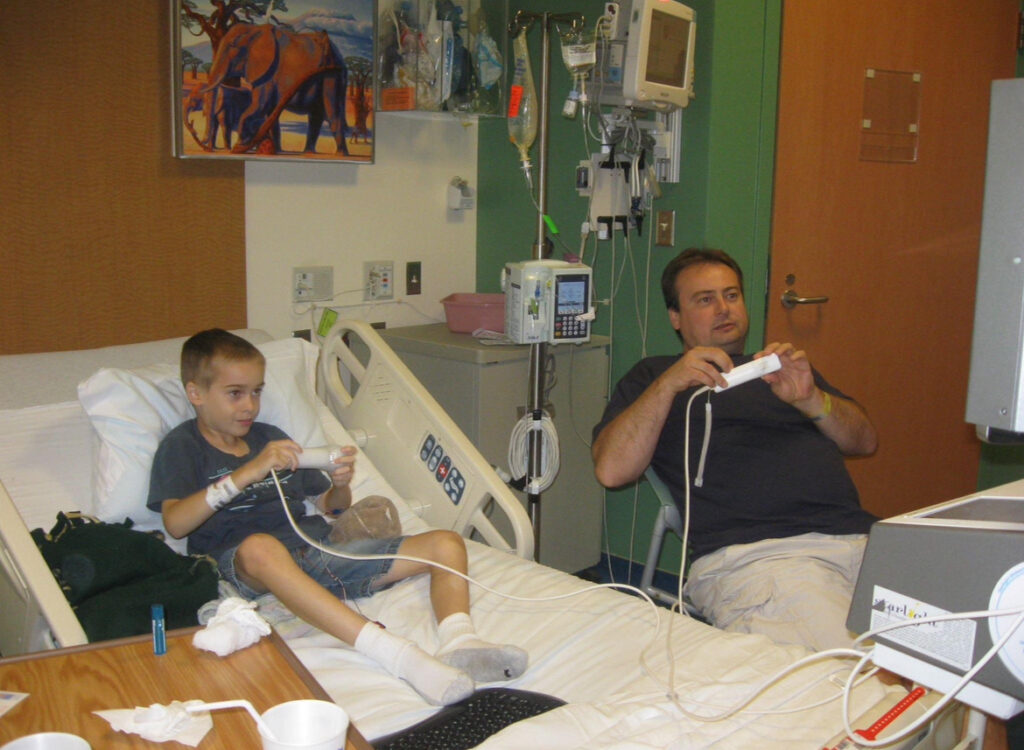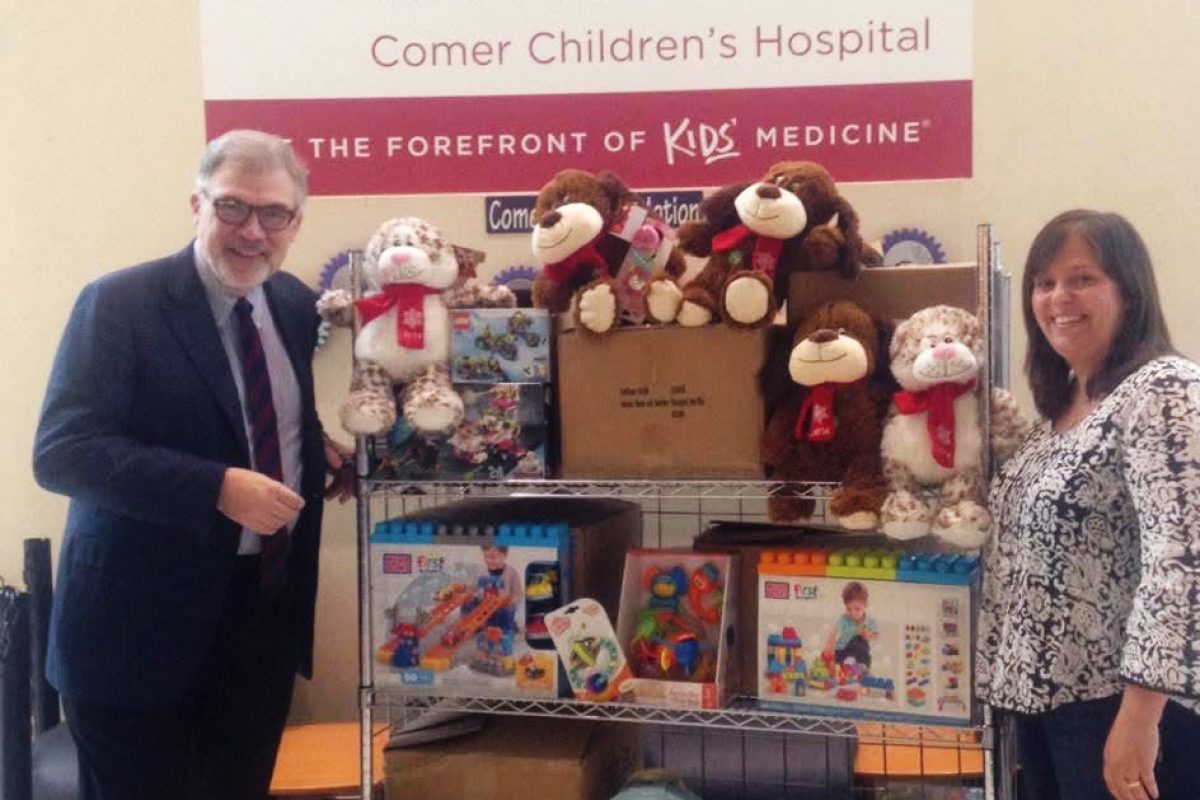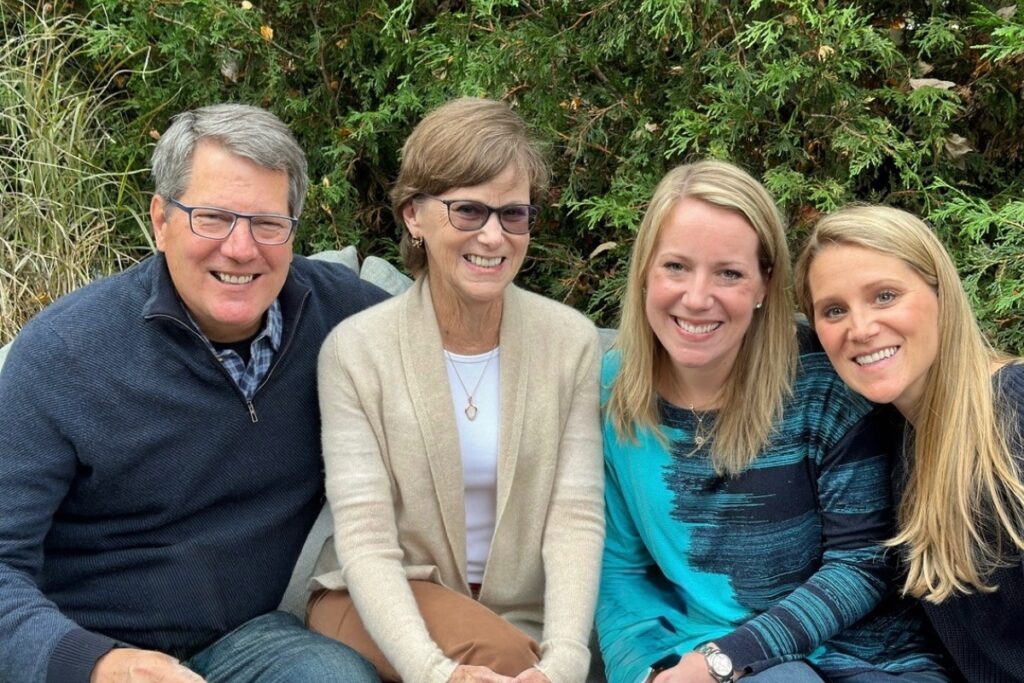When the Veghts family founded Team Nicholas in memory of their son, Nicholas, who passed away in February 2012, they wanted to support child life programs at the University of Chicago Medicine Comer Children’s Hospital. The child life team provided Nicholas with supportive services, such as play and art therapy, during his stay at Comer Children’s.
“After Nicholas passed, Team Nicholas decided that we were going to help the hospital to support families like ours that were going through similar situations, and bring some comfort and joy to them while they’re in the hospital,” said Joanna Veghts, Nicholas’s mother.
Child life specialists are trained to find ways to decrease the anxiety and trauma that pediatric patients and their families face when they come to the hospital, using play, music, and art therapies, as well as distraction and relaxation techniques.
During his stay at Comer Children’s, Nicholas particularly loved playing with LEGO® sets and would search through the chest in the playroom to see if any were available. When the Veghts family began their support over a decade ago, they started with in-kind gifts of LEGO® sets.
Veghts described the importance of experiencing a short period of normality while going through unimaginable circumstances. She appreciated the support the program offered the whole family, including Nicholas’s sister. “We loved the art therapy programs,” she said. “When Nicholas was sick, our daughter would hang out with the child life specialist and do all the arts and crafts that she wanted. They knew what she needed.”

The power of play
Play therapy is a key component of child life programs, providing a way to help children cope with the challenges of hospitalization and medical treatment. A child life specialist might use dolls, stuffed animals, and medical kits to familiarize children with medical procedures. Drawing, painting, and crafts allow children to creatively express their emotions and experiences. Sensory materials like Playdough, sand, and water can be calming and therapeutic. Age-appropriate games and toys provide entertainment, while activities and events provide distraction and a chance to socialize with other children, hospital staff, and volunteers.
“We just want to have something there for that when these kids are going through the hardest time of their lives so that they can have a little toy or something to bring a smile to their face,” said Veghts.
Now in their thirteenth year of giving, the family continues to work closely with staff at Comer Children’s.
“Child life has been phenomenal, helping us with our donations and giving us ideas of what the kids want at the hospital,” said Veghts.
Community-wide support
Over the years, the Veghts family broadened their support through community and corporate fundraising. “I have a community behind me here in the Joliet-Plainfield area and my dad works with the Concrete Contractors Association to raise funds so that we can purchase supplies for the Comer Children’s community,” Veghts said.
Bob Morreale, Nicholas’s grandfather, is Executive Director of the Concrete Contractors Association of Greater Chicago. “The Concrete Contractors Association hosts three well-attended events each year that feature sponsorships and raffles. Our contractor, supplier members, and guests are always enthusiastic about helping the kids—contributions to child life have been doubling, tripling and even quadrupling over the years. Everyone is thrilled about helping to fill the playroom with things to take the kids’ minds off their illness or treatments at the hospital,” said Morreale.
Today, Comer Children’s employs 18 child life specialists and offers an art therapy internship. Over the course of a year, they will have tens of thousands of sessions with patients and their families. Nicholas’s family had a deep, first-hand understanding of how meaningful each individual session is. “It gives the family something important, to see that their child is experiencing some joy in a difficult situation,” said Veghts.




